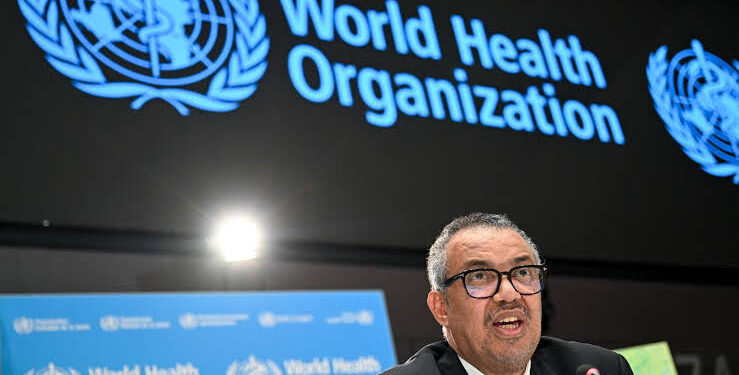The World Health Organisation (WHO) has called for 1.5 billion dollars for its 2025 Health Emergency Appeal (HEA) to support life-saving health interventions worldwide.
WHO’s Director-General, Dr Tedros Ghebreyesus, made the call on Thursday in a statement outlining the critical priorities and resources needed to address 42 ongoing health emergencies.
“These include 17 Grade 3 crises, the most severe emergencies that require the highest level of response.
“Conflict, climate change, epidemics, and displacement are converging to create an unparalleled global health crisis, with 305 million people in urgent need of humanitarian assistance in 2025,” Ghebreyesus said.
He explained that with health systems stretched to their limits and global financial resources dwindling, the 1.5 billion dollars was needed to help people facing the most difficult situations.
“Conflicts, outbreaks, climate-related disasters, and other health emergencies are no longer isolated or occasional; they are relentless, overlapping, and intensifying.
“From controlling cholera outbreaks to providing mental health support in conflict zones, WHO’s work extends beyond the immediate care we provide,” Ghebreyesus added.
He stated that the appeal aimed to empower communities to protect themselves, prioritise equity, and build a legacy of preparedness.
“This appeal is about enabling WHO to save lives, protect the right to health, and provide hope where there is none.
“WHO is committed to delivering emergency health assistance, including in conflict zones such as the Democratic Republic of the Congo, the occupied Palestinian territory, and Sudan.”
Ghebreyesus outlined that WHO’s response aligned with wider humanitarian efforts, prioritising essential care and medical supplies, and treating malnutrition.
He added it also included supporting maternal and child health, conducting vaccination campaigns to prevent disease outbreaks, and offering mental health support to populations impacted by trauma.
“The appeal also highlights four key challenges facing the world: climate change, conflict, displacement, and disease outbreaks.
“These are responsible for fueling deeper, longer-lasting health crises and putting the world’s most vulnerable at greater risk,” Ghebreyesus said.
He said the appeal further detailed the priorities and financial needs for each of the Grade 3 emergencies that WHO was responding to.
Ghebreyesus said that with the support of donors and partners, WHO aimed to fulfil its unique role in health emergencies.
He emphasised the importance of upholding the principles of international humanitarian law, ensuring that no one is left behind, even in the most challenging circumstances. (NAN)











